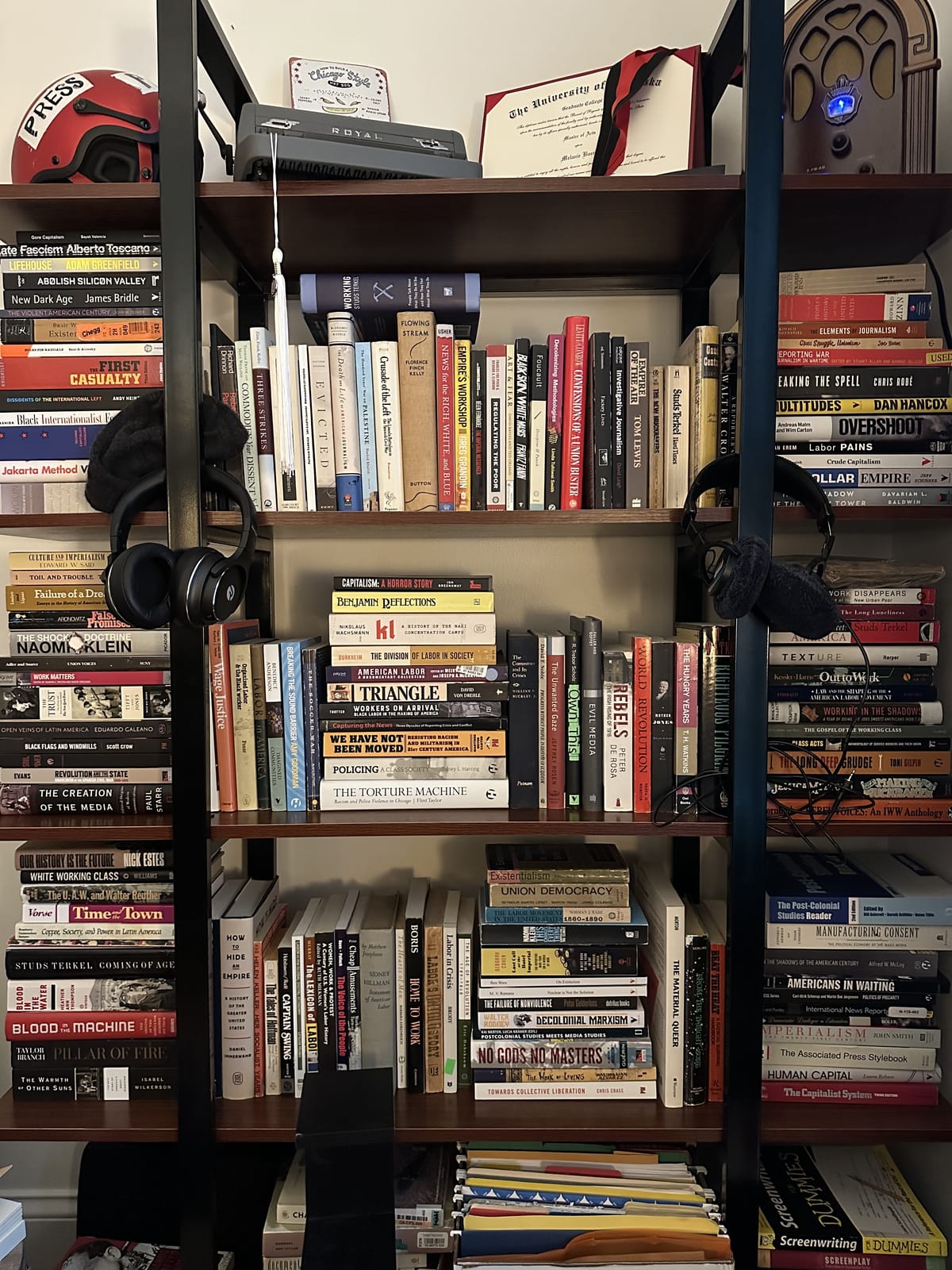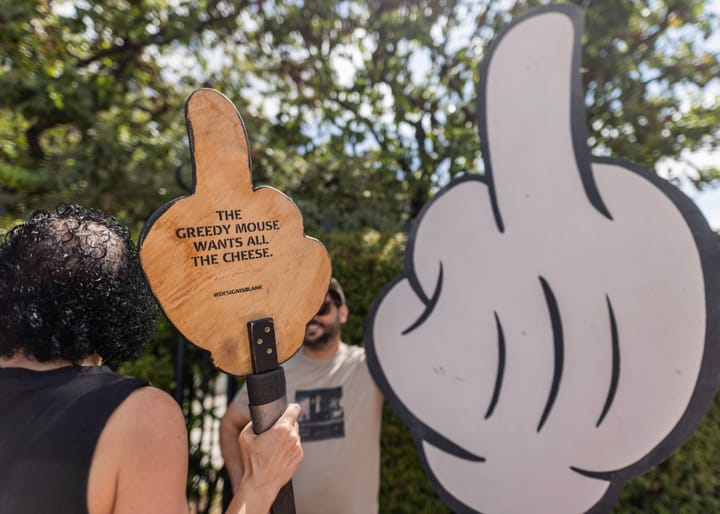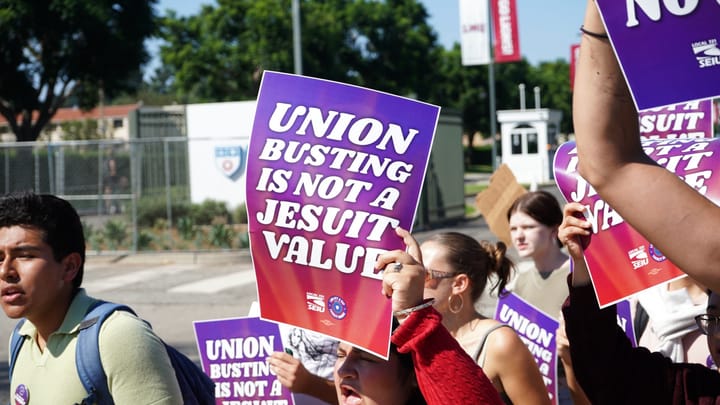Learning to read again
Holding myself accountable for building new and better habits

Holding myself accountable for building new and better habits
I’ve taken Vincent Bevins’s advice recently—many thanks to Matt Pierce for drawing attention to Bevins’s summer newsletter about this topic in one of his recent blogs—and begun the process of learning to read again. Over the course of the last many years, I have found myself unable to finish a book—any book, really—that I am not reading for research for a podcast or other work-related item. Even when I need to finish the work in order to write the script or article, I struggle mightily with keeping my attention focused on the task at hand.
This is, I’m sure, a problem that many of us experience. As Bevins mentions in his post,
He asked what books I had liked recently, and I had to admit to myself (and to him) that I had basically stopped reading them. Scrambling, I came up with a bunch of excuses. Of course I was reading other things; I was constantly ingesting all kinds of journalistic content, in several languages. Sometimes I was reading long magazine articles. But that was all nonsense. Obviously, what had really happened is that the internet scrambled my brain and made me unable to pay attention to anything much longer than a tweet.
This short attention span brought on by social media and the internet was something that I think I unconsciously encouraged in myself. For those who might not know, I have a master’s degree in British Literature. For three years between 2018 and 2021, I was firmly ensconced in the rigors of a graduate program—reading upwards of 600 pages a week (not including student papers that I graded on a regular basis for the composition courses I taught and scholarly research for conferences, etc.,). I read quite a bit of wonderful Victorian fiction and immersed myself in political and literary analysis and philosophy, and it felt good to expand my knowledge of things I cared about. At the same time, reading became a job—a full-time job, a chore to complete, a source of angst. By the time I graduated in May 2021, I never wanted to read like that again. Grad school took all the joy out of reading good fiction, and it felt nice to put the books down and just scroll on Twitter, or step out into the real world and listen to humans for once. By that time, I was already setting myself up for a full-time career in journalism, which provided a very different work process from the one I had become used to while getting my degree. Fast forward four years and I’m a bit stuck in a rut—I read articles, tweets, listen to podcasts or watch newscasts. The books I pick up rarely get finished.
“I wanted to be very intentional about fixing this,” Bevins wrote. So do I.
I created this “TBR” section in my newsletter as one piece of that puzzle—as I’m sure most writers, journalists, scholars, intellectuals, etc., will tell you, working against a deadline can be a boon for cracking open the door to creativity. For me, that shortened time-frame between myself and that looming deadline is the space where I often write my best work. I am a dreamer, my thoughts float above my head in a nebulous cloud, and the more space—time—I have to watch that cloud swell and ripple in the ether right in front of my eyes, the more unfocused I become. As a result, the work I produce is not great (by my estimation), and it is only through the efforts of an extremely astute editor (shout-out to the mighty few at TRNN who turn my shit into gold) that I can really work to produce something that is actually worth reading—which is extremely important when the work I produce most often is my journalism, which I take very seriously. It’s important for me to be able to write well, with accuracy, when I have been trusted to tell the stories of others. No room for mistakes there.
But I digress—the point here, in so many words, is that this section of my newsletter is partially designed to put regular reading back on my schedule. When Bevins resolved to learn to read again, now nearly ten years ago, he created a system for himself that would remove the distractions that prevented him from reading, and he gave himself a modest goal of one book a month. For my part, I already (mostly) read one book a month, despite my best efforts to sabotage myself, so I’ve worked out a slightly more challenging goal of 3 books a month. I’m fairly confident I can hit that goal. Frankly I think I’ll sprint past it if I really make space for reading in my schedule. Just an hour or two a day, morning and night (or morning OR night), and I’ll be back on track to wrestling my attention span away from social media. Weekly updates baked into my writing schedule seem like a good way to keep myself focused on accomplishing (and ultimately expanding) those goals. I’ll probably put these updates out every Thursday or so.
As I reorient myself back toward a regular reading habit, I’m hoping that this newsletter section will be a good place to share my thoughts about what I’ve read, and hopefully offer some suggestions for readers looking for new books in their own reading journey. I’m still experimenting with what seems worth it to paywall and what isn’t, but my inclination here is that I won’t paywall this section either. Reading is for everyone, after all.
I hope you have a wonderful weekend, folks. Until next time.
Words About Work is a reader-supported publication. To receive new posts and support my work, consider becoming a free or paid subscriber.




Comments ()